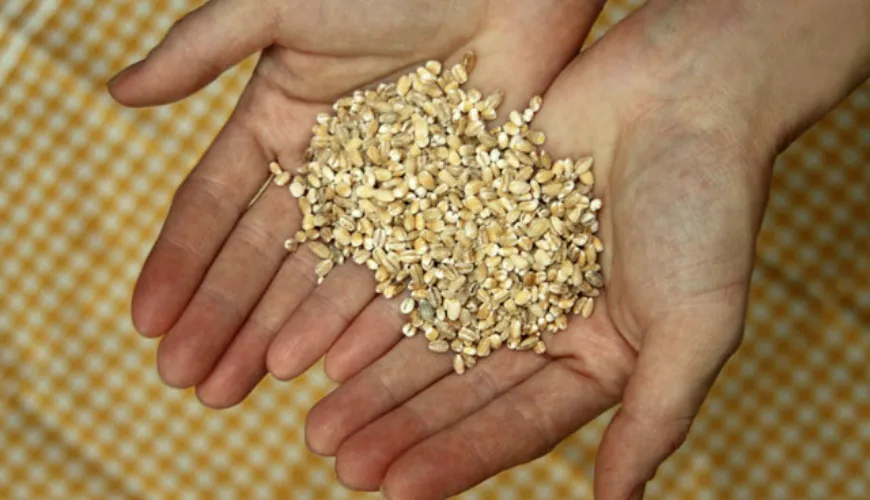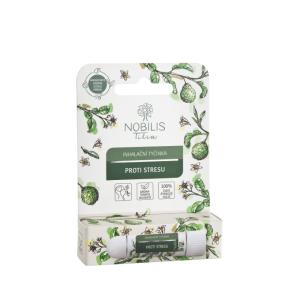
How to Get Rid of Burning Tongue and What Can Help with Relief

When the Tongue Burns - What Could Be Behind It and How to Relieve It
Burning tongue. An unpleasant sensation that can appear out of nowhere and without warning. Some describe it as a stinging, hot, or even prickly irritation concentrated not only on the tongue itself but sometimes also on the palate, gums, or lips. Although it can be a temporary issue caused by hot food, in some cases, there is more to it than meets the eye.
People often search for answers to the question, what helps with burning tongue, only when the problem starts to recur, worsen, or is accompanied by other symptoms. Discussions on this topic arise on internet forums and in doctors' waiting rooms. There are several possible causes – from common dietary mistakes to hormonal changes, stress, viruses, or neurological disorders.
When Burning Tongue Is Caused by Stress
One of the less known but quite common causes of burning tongue is a person's psychological state. Burning tongue from stress is a reality many underestimate. Yet, stress can cause changes in the nervous system that affect the sensitivity of the oral mucosa. It can be a result of prolonged fatigue, tension, or even anxiety disorders, where the body reacts to internal tension with physical symptoms.
One patient shared her experience on a discussion forum: “It started subtly – my tongue would sting occasionally, especially in the evening. I thought it was from spicy food. But when the burning began to appear in the morning and without any reason, I started investigating. It turned out it was due to burnout at work."
Similar stories can be found by the dozens online. Burning tongue can thus be classified alongside psychosomatic issues such as headaches, digestive problems, or palpitations – the body simply finds a way to signal that something is not right.
Try our natural products
Could It Be Burning Mouth Syndrome?
In some cases, burning tongue may be part of a broader issue known as burning mouth syndrome. This condition predominantly affects postmenopausal women, but it can also appear in men or younger patients. Its cause is not always clear. Sometimes it's related to hormonal changes, other times to nerve disorders or a deficiency in B vitamins, iron, or zinc.
This syndrome is mysterious even for experts – patients often undergo numerous tests that reveal no apparent cause, yet the troubles persist. The burning sensation can be constant or appear and disappear throughout the day.
Burning Tongue After COVID
A peculiar chapter is burning tongue after having COVID-19. This phenomenon has been described in many patients, although it hasn't always been confirmed by clinical studies. It is believed that the SARS-CoV-2 virus can affect taste buds and nerve endings in the mouth, leading not only to a loss of taste but also to burning or tingling of the tongue.
Some British studies, such as one published in the British Journal of Dermatology, report that some patients experienced dermatological manifestations in the mouth – including inflammations, swelling, sores, and burning tongue. Given that the nervous system can also be affected by COVID, it is not surprising that these issues appear even during recovery. For some people, the burning lasts weeks or even months after a negative test.
Seeking Help - What Helps with Burning Tongue?
When the tongue starts burning, the first reaction is often to seek quick relief. In many cases, simple changes in daily routine or diet adjustments help. If the cause is apparent – such as spicy food, a hot drink, or an allergy to toothpaste – the solution may be simple. In other cases, a more comprehensive approach is needed.
Some of the most common recommendations for what helps with burning tongue include:
- Changing oral hygiene – avoiding pastes with sodium lauryl sulfate, which can irritate the mucosa.
- Staying hydrated – dryness in the mouth exacerbates burning, so it's important to drink regularly and avoid alcohol, caffeine, and smoking.
- Diet changes – limiting spicy, acidic, or overly hot foods.
- Dietary supplements – B vitamins, iron, and zinc can help if the burning is caused by their deficiency.
- Stress management – meditation, breathing exercises, or psychotherapy can be crucial if stress is the underlying issue.
- Cooling remedies – sucking on ice cubes or mint can provide temporary relief.
- Herbal rinses – such as sage or chamomile, which have anti-inflammatory effects.
It's important to realize that there is no universal solution. What helped one person may not work for another. Therefore, discussions about burning tongue often feature contradictory recommendations. While sucking on lidocaine tablets helped someone, it caused further irritation for another.
Discussions as a Source of Support and Misinformation
When you search for "burning tongue – discussion," the internet offers hundreds of posts. Some are very valuable, others more confusing. People share their experiences, often after years of fruitlessly seeking a diagnosis. However, it's important to approach these discussions critically. Not everything that helped one person will work for another. And some recommendations can even be dangerous – for example, using essential oils directly on the tongue without dilution.
However, discussions can also be a valuable source of psychological support. Knowing that one is not alone with their problems brings relief. Moreover, many stories highlight possibilities that doctors have overlooked – such as allergies to dental materials or side effects of medications.
When to Consult a Doctor?
If burning tongue lasts more than a few days, recurs, or worsens, professional examination is advisable. Sometimes it's a symptom of a more serious illness – such as diabetes, neurological disorders, autoimmune diseases, or even cancer. Many doctors recommend visiting a dentist, as some inflammations or improperly fitting dentures can also contribute to tongue irritation.
Examinations often include blood tests for vitamin, hormone, and sugar levels, as well as oral cultures or allergy diagnostics. In some cases, cooperation among several specialties is needed – dentist, neurologist, ENT doctor, and psychologist.
As renowned Czech doctor MUDr. Jan Hnízdil says: “Illness is information. And if we don't listen, it can speak louder." Burning tongue may seem trivial, but it can sometimes be that subtle message that the body needs our attention.
In conclusion, although burning tongue is not always easy to diagnose, there are many ways to alleviate or completely eliminate the troubles. The key is to carefully monitor one's body, be open to alternatives, and be willing to seek comprehensive causes – whether physical or psychological.


